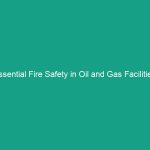Introduction
Good morning team! Today, we’re going to talk about an essential topic that affects each and every one of us in the workplace: the must-know seven basic general industry Safety rules to protect workers. These rules are not just guidelines; they are critical practices that can help prevent accidents, injuries, and even fatalities on the job. Understanding and applying these rules can create a safer work Environment for everyone, which is why this discussion is so important.
Understanding Must-Know Seven Basic General Industry Safety Rules
The must-know seven basic general industry safety rules are foundational principles designed to protect workers in various industries. These rules emphasize the importance of safety protocols, proper Training, and a proactive approach to hazard management. By adhering to these rules, we can significantly reduce the risk of workplace incidents, ensuring that everyone goes home safe and sound at the end of the day.
Many people might believe that safety rules are just bureaucratic red tape or unnecessary inconveniences. However, the reality is that these Regulations are developed based on real-world incidents and observations. Ignoring these rules can lead to severe consequences, including injuries, legal ramifications, and financial losses for both employees and employers.
Key Hazards, Risks, and Safety Considerations
As we delve into the must-know safety rules, it’s vital to recognize the specific Hazards and risks present in our work environment. Common hazards include:
- Slips, trips, and falls due to wet or uneven surfaces
- Exposure to hazardous materials and chemicals
- Inadequate machine guarding leading to accidents
- Ergonomic risks from improper lifting and repetitive motion
- Electrical Hazards from faulty wiring or equipment
Ignoring safety protocols can lead to real-world consequences such as workplace injuries, increased insurance costs, and even loss of life. Understanding these risks is the first step in mitigating them through the application of our safety rules.
Best Practices, Procedures, & Actionable Advice
Let’s break down the seven basic general industry safety rules that every worker should know:
1. Always Wear Personal Protective Equipment (PPE)
Wearing the appropriate PPE is crucial in protecting yourself from potential hazards. This includes hard hats, gloves, goggles, and respiratory protection as needed. Always ensure that your PPE fits properly and is in good condition. For example, if you’re working in a construction environment, hard hats can prevent serious head injuries from falling objects.
2. Follow Proper Lifting Techniques
Improper lifting can lead to severe back injuries. Always bend your knees, keep your back straight, and lift with your legs. If an object is too heavy, ask for help or use mechanical aids. Remember, it’s better to take an extra moment to lift safely than to risk an injury.
3. Keep Work Areas Clean and Organized
A cluttered work area can lead to slips and trips. Ensure that walkways are clear and that tools and materials are stored properly. Schedule regular clean-up times and encourage your coworkers to maintain cleanliness, as it Benefits everyone.
4. Report Unsafe Conditions Immediately
If you notice a hazard, do not ignore it. Report it to your supervisor immediately. Addressing unsafe conditions as soon as they are identified can prevent accidents. Remember, it’s everyone’s responsibility to maintain a safe workplace.
5. Follow Safety Procedures and Policies
Every workplace has specific safety procedures and policies. Familiarize yourself with these rules and adhere to them at all times. For instance, if your company has a lockout/tagout procedure for machinery, ensure you follow it to prevent accidental startup during Maintenance.
6. Participate in Safety Training
Safety training is not just a requirement; it’s an opportunity to learn about potential hazards and safe work practices. Attend all training sessions and actively participate. Not only will you learn valuable information, but you’ll also demonstrate your commitment to safety.
7. Maintain Open Communication
Discuss safety concerns with your coworkers and supervisors. Open communication fosters a culture of safety and ensures that everyone feels comfortable voicing their concerns. Consider holding regular safety meetings to discuss potential hazards and improvements.
Regulations, Standards, and Compliance
Understanding the regulations that govern Workplace Safety is critical. The Occupational Safety and Health Administration (OSHA) sets forth guidelines that all employers must follow to ensure the safety of their workers. Compliance with these regulations not only protects employees but also shields the company from potential fines and legal issues. It’s essential to stay informed about any updates to safety Standards and ensure that your workplace is compliant.
Employee Engagement & Discussion
Now that we’ve covered the seven safety rules, I’d like to open the floor for discussion. What safety challenges have you encountered related to these rules? Are there any specific experiences you’d like to share? Engaging in conversations about safety can help us learn from one another and improve our practices.
Conclusion & Key Takeaways
In conclusion, understanding and applying the must-know seven basic general industry safety rules to protect workers is essential for creating a safe and productive work environment. Remember, safety is everyone’s responsibility. By wearing PPE, following proper lifting techniques, keeping work areas clean, reporting unsafe conditions, adhering to safety policies, participating in training, and maintaining open communication, we can all contribute to a safer workplace.
Thank you all for your attention and commitment to safety. Let’s make it our priority to apply these practices every day, ensuring that we all return home safe and sound.


